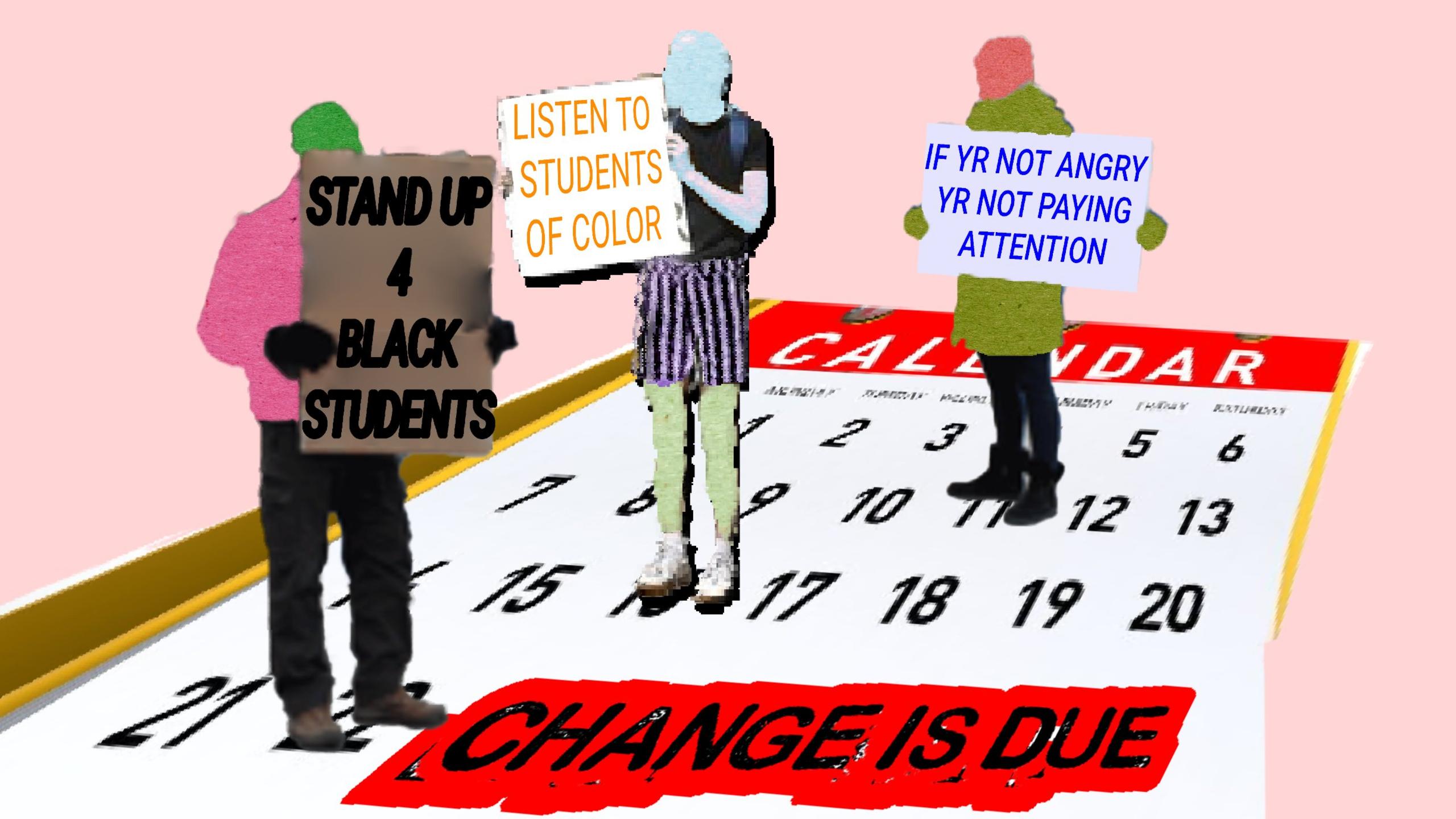By Samreen Maqsood
Eight of the 14 recommendations from Ryerson’s Anti-Black Racism Campus Climate Review report (ABRCCR) have begun implementation, according to an updated announcement from the reports’ Presidential Implementation Committee (PIC) released on Feb. 25.
Following its release in July 2020, the ABRCCR promised 14 recommendations would be put in place to “create a more inclusive environment” at Ryerson over the next two years. Six recommendations were from students, three were from staff, four were from faculty and one was from the Office of the Vice President, Equity and Community Inclusion (OVPECI).
Four new subcommittees have been formed to address the ABRCCR’s recommendations, according to the update. They include a Student Working Group, a Faculty Working Group and a Staff Working Group and a Black Student Advisory Committee consisting of only Black-identifying students.
According to an email from Ryerson’s central communications, all members of the PIC have participated in a series of education sessions called “Anti-Black Racism 101,” the last of which took place on Feb. 25.
Anver Saloojee, former co-chair of the PIC has stepped down from the role following the completion of his term as vice-president at Ryerson International. Interim provost and vice-president Saeed Zolfaghari will be the new co-chair, joining vice-president administration and operations Deborah Brown and vice-president equity and community inclusion Denise O’Neil Green.
The BLC had concerns regarding the ABRCCR’s formation from the beginning. As previously reported by The Eye, BLC had “criticized the reports’ failure to hold Ryerson accountable for anti-Black racism, by repeatedly saying that all academic institutions deal with racism.” Other contentions included the report’s seven month delay and approval of security guards on campus.
The BLC was not able to respond for comment in time for publication.
Student recommendations
Three of the six student recommendations are in the process of being fulfilled. The first is “campus-wide training in equity, diversity and inclusion across all disciplines and programs.” This involved an anti-Black racism educational workshop hosted by the OVPECI, according to the update. Through a 90-minute presentation, the historic nature of anti-Black racism in Canada and it’s living impacts on Black people was explained by facilitators Crystal Mark, OVPECI education and awareness outreach consultant; Cheryl Thompson, assistant professor at the School of Creative Industries; Desmond Cole, award-winning journalist and prominent speaker against anti-Black racism in Toronto; and O’Neil Green.
Fulfilling this recommendation involved hiring an education and awareness facilitator who went unnamed in the update, and an additional educational session for Ryerson senior leaders led by Wanda Thomas Bernard—a social worker and member of the Senate of Canada.
The next recommendation being addressed is the “funding of events, meetings and information sessions that specifically support and centre Black students.” This began with the forming of the Black Excellence at Ryerson committee, which will assist in the development of the initiatives and events that specifically support Black students. To that end, the Inaugural Black Students, Faculty and Staff Mixer, the Black Student Achievement Awards Ceremony and the Black Graduates Celebration have been hosted already, with more events planned for the remainder of 2021.
Funding for Black students was also established through the Black Graduate Student Awards, which includes awards and bursaries established by the Yeates School of Graduate Studies to help with the cost of graduate education.
Creating “a dedicated Black student space on campus with the necessary resources allocated to it for Black students to feel safe and a sense of belonging,” is also in the works, according to the update. An as-of-yet unnamed room in Kerr Hall West (KHW-077) has been assigned as this space.
Remaining ABRCCR recommendations from students include a “concerted and deliberate effort to diversify disciplines and programs,” and the realignment of campus security to “positively impact Black student belonging.” The latter received no reference in the Feb. 25 update despite campus security and Ryerson’s relationship with Toronto Police Services being one of the top concerns from the Black Liberation Collective (BLC), who initially pushed for the ABRCCR in 2016. BLC member Hansel Igbavoa had said he believed Ryerson delayed publishing the ABRCCR last June because it’s recommendations for campus security did not align with the university’s previous plans to allow special constables on campus, according to previous reporting from The Eye.
Staff recommendations
According to the ABRCCR update, all three staff recommendations have begun implementation. They include a “comprehensive review of Black compensation, grade, rank and the ways in which Black staff files are handled;” “a process of building trust among Black staff” involving unions and university senior management and the “establishment of programs designed for staff advancement specifically targeted at Black staff.”
“Staff articulated everything from banal day-to-day racism to larger and more systemic issues like compensation disparities, inability to move up the ranks, being passed over for promotions and being on contracts or ‘termed positions’ long-term,” read the report.
Faculty recommendations
Two of the four faculty recommendations have begun implementation; the first being that “Ryerson should design and/or enhance programs for recruiting Black faculty members across all its programs.” The second was that “contract lecturers, especially long-term ones, should be made aware of the differences between [the Canadian Union of Public Employees] and the [Ryerson Faculty Association]” through new training materials.
In September, contract lecturer and filmmaker Christene Browne was blocked from an opportunity to instruct the Radio-Television Arts (RTA) practicum course for her fifth year because she wasn’t involved with the Ryerson Faculty Association, according to previous reporting from The Eye. As a Black instructor, Browne said she was concerned for racialized RTA students who depended on her guidance and perspective.
Regarding all remaining recommendations, the co-chairs said they are still in progress.













Leave a Reply